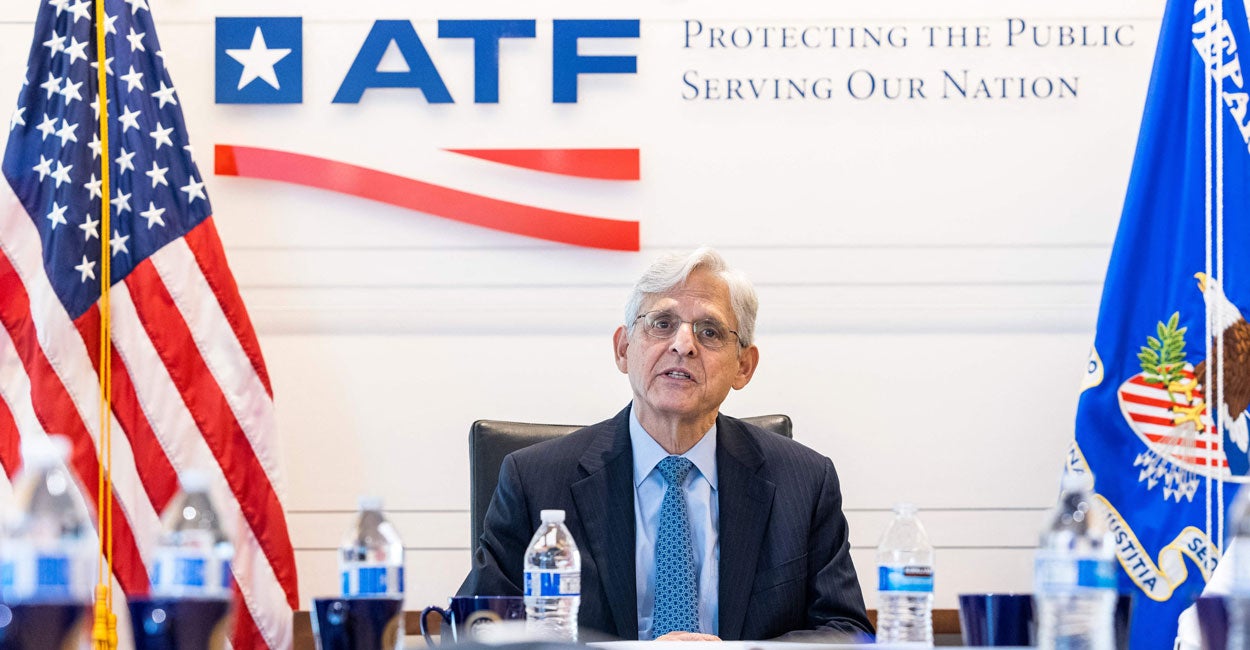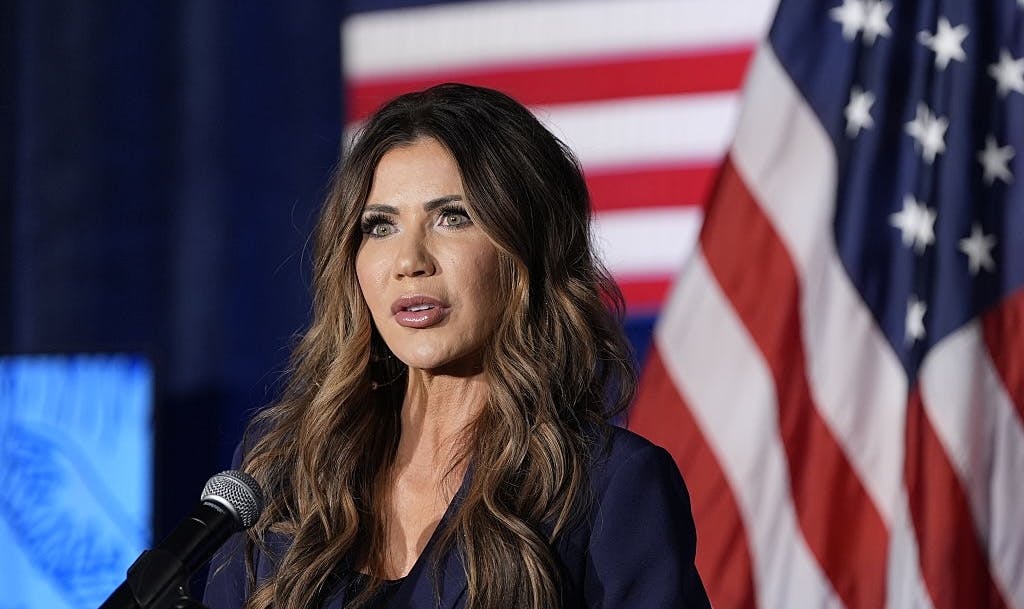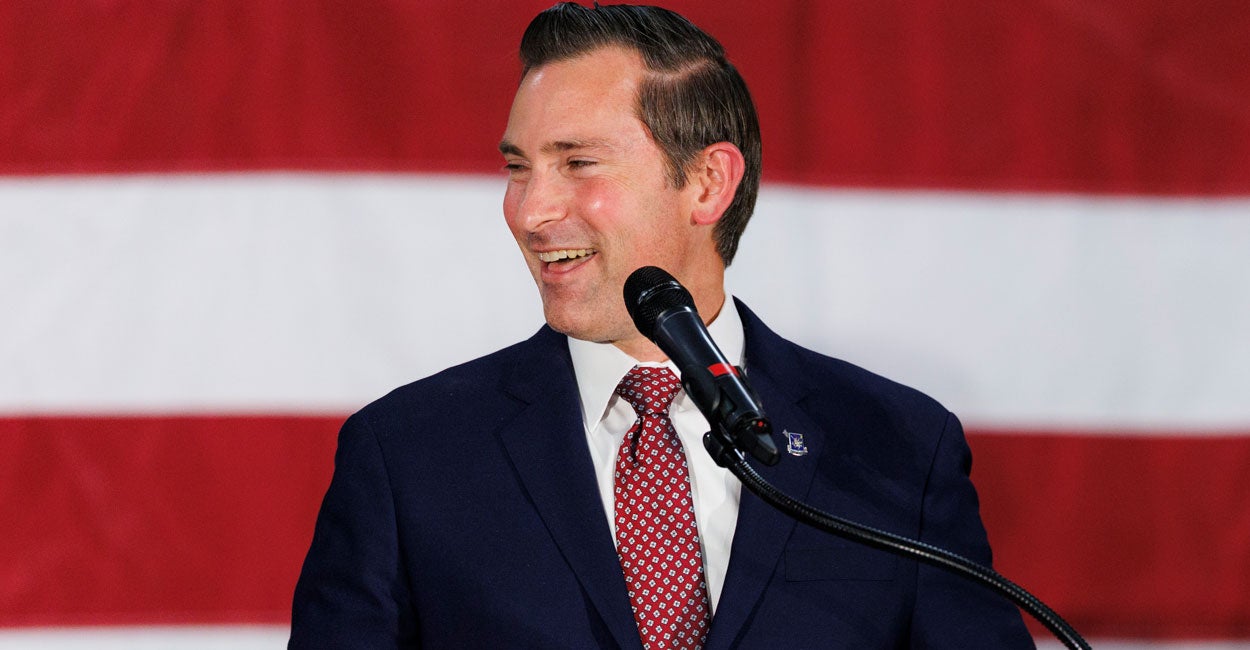‘Chevron Deference’ Was an Affront to Our Founders—Now, We Must Reverse the Damage

President Donald Trump and the Department of Government Efficiency have made great headway in slashing regulations, but this work could be short-lived unless Congress makes these changes permanent.
For 40 years, the Chevron doctrine, also known as Chevron deference after a 1984 Supreme Court decision, has empowered the administrative state to extend the power of the federal government further and further over the lives of Americans. This made doing business in the United States extremely difficult and has cost our economy as a whole a fortune.
Regulatory costs skyrocketed under the Biden-Harris administration. In just four years, federal agencies reported that the cumulative total of the cost for individuals and businesses to comply with regulations under the administration added up to more than $1.8 trillion.
Even more egregious, in 2024, federal agencies imposed almost 92 million hours of paperwork on the American people and added over 107,000 pages of rules to the Federal Register, according to the American Action Forum. There is no way to calculate how much 92 million hours of paperwork will cost American business owners and their customers —but I can assure you, it’s too much.
The administrative state is out of control. Part of the reason can be traced back to the use of the Chevron doctrine. Fortunately, it was overturned in June of last year, but there is now 40 years of red tape to unravel.
The Chevron doctrine held for decades that if a federal regulation was challenged, federal courts should defer to the agency’s interpretation of the law the regulation was based on. The only checks on this doctrine were that the interpretation should be “reasonable” and that the question wasn’t directly addressed in the text of the law itself.
Obviously, this opened the door to a flurry of issues. One presidential administration’s definition of “reasonable” differed vastly from another.
Since this case was decided in 1984, the power of the executive branch has grown exponentially, usurping the lawmaking role of Congress and the judicial discretion of the courts. Since these rulemaking agencies are under the executive branch, multiple presidents have used Chevron deference and other tactics to manipulate laws passed by Congress to serve their own political agenda.
For example, President Joe Biden grossly overstepped his authority when he issued a “90-day pause,” which lasted for over 200 days, on the issuance of new firearm export licenses. The policy stonewalled license applications for months, devastating American business owners. The Biden-Harris administration also stretched agency authority beyond the limits to forgive massive amounts of student loan debt that it actually didn’t have the authority to forgive.
It’s time to roll back this administrative tyranny.
For decades, Chevron deference significantly eroded the separation of powers among the three branches of government, undermining the checks and balances vital to our constitutional system. In an 1817 letter to John Adams, James Madison wrote, “The great question now to be decided … is, whether checks and balances sufficient for the purposes of order, justice, and the general good may not be created by a proper division and distribution of power among different bodies.”
Our Founding Fathers believed that tyranny results from power residing in one place. That’s why they were intentional about separating it. However, Chevron deference allowed executive agencies to shape, execute, and adjudicate laws—creating an unhealthy level of concentrated power within the bureaucracy and the executive branch. Allowing federal agencies to act like lawmakers is exactly what our Founders attempted to avoid when they decentralized power.
One particularly heinous example of bureaucratic overreach was when the Biden-Harris administration attempted to radically expand the Waters of the United States rule. Under this expansion, the Environmental Protection Agency would have been given the power to override the property rights of Americans with ponds on their property or even ditches that collected rainwater. It would have prevented farmers from taking care of their own land, even regulating how close they could mow a patch of grass adjacent to a ditch.
According to Steve May, a farmer in Humphreys County, Tennessee, “Farmers are stewards of the land and water. They want to see that it’s protected and conserved. Overregulation leads to unknowns that cripple farmers’ ability to plan.”
Steve Hargrove, a beef cattle producer in Benton County, agreed and told my office,
“My concern is that the government is going to try to take over not only the creeks, but the ponds on my farm, too. I’m concerned I won’t be allowed to keep these bodies of water clear. And if I’m forced by this rule to let these creeks and streams go wild, it will affect my land. It could cause drainage problems in the field. I could lose ground, and that affects my way of life.”
Had this Waters of the United States rule-change been enacted, it would have been the end to true property rights in America.
Under the rule of Chevron, the deck was always stacked against everyday Americans. Consider that agencies won 71% of all cases where their regulations were challenged—and 93.8% of ambiguous cases. This gave an unfair advantage to federal agencies and ensured that true congressional intent and the will of the American people didn’t stand a chance.
Representative government is the cornerstone of our constitutional system, but when that accountability is missing, abuse follows.
Consider how the Biden-Harris administration’s Bureau of Alcohol, Tobacco, Firearms, and Explosives treated gun shop owners. Tactical Edge LLC, a veteran-run gun shop in my hometown of Clarksville, had its federal firearms license revoked for minor paperwork errors. Bobby James, one of Tactical Edge’s owners, told my office, “This was all politics. They’re closing down gun shops so Americans can’t get guns.”
Tactical Edge filed an appeal with the ATF and lost. It spent $60,000 on lawyer’s fees. James said, “For small businesses, there is not enough money to compete with the budget of the federal government and the ATF’s numerous elite lawyers.”
As a result, Tactical Edge was forced to lay off most of its employees, many of whom were veterans. Though the Trump administration has now rescinded Biden’s “Zero Tolerance Policy,” gun shops like Tactical Edge have yet to get their licenses back. As a result, Tactical Edge has lost 80% of its business.
These are just a few stories of how government overreach has impacted real Americans, but there are many more. To protect Americans and American businesses from government tyranny, I introduced the Sunset Chevron Act. This bill would force all executive agency actions that have been upheld by the courts because of Chevron deference to sunset—unless they were upheld by subsequent congressional action. Every agency would be required to compile a list of all such rules in chronological order of implementation. Then, in order of most recent to least recent, each agency would sunset a different rule every 30 days. This would right 40 years of executive overreach.
Our Founding Fathers believed that the executive branch should execute the law, the legislative branch should write the law, and the courts should interpret the law. This bill restores the separation of powers to our constitutional system.
We publish a variety of perspectives. Nothing written here is to be construed as representing the views of The Daily Signal.
The post ‘Chevron Deference’ Was an Affront to Our Founders—Now, We Must Reverse the Damage appeared first on The Daily Signal.
Originally Published at Daily Wire, Daily Signal, or The Blaze
What's Your Reaction?
 Like
0
Like
0
 Dislike
0
Dislike
0
 Love
0
Love
0
 Funny
0
Funny
0
 Angry
0
Angry
0
 Sad
0
Sad
0
 Wow
0
Wow
0











































































